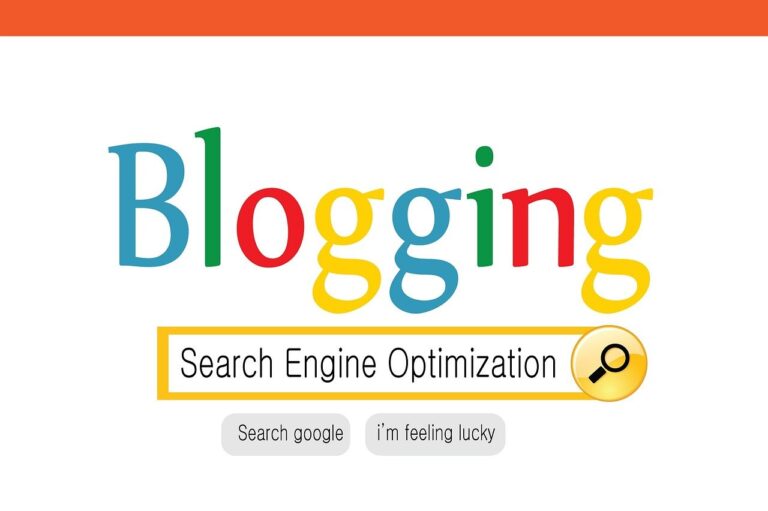Creating a supportive online environment for holistic practitioners is crucial in today’s digital age. A well-designed forum can foster meaningful connections, facilitate knowledge sharing, and provide a platform for professional growth.
Designing an engaging website tailored specifically for holistic practitioners can create a sensational online experience for clients and colleagues alike.
When establishing an online community for holistic practitioners, it’s essential to prioritize privacy, security, and healthy discussions. By implementing best practices for moderation and encouraging active participation, you can create a safe space where members feel comfortable sharing experiences and knowledge.
This collaborative environment not only benefits individual practitioners but also contributes to the advancement of holistic health practices as a whole.
Key Takeaways
- Create a user-friendly and visually appealing website to attract potential clients and facilitate interaction among practitioners
- Implement strong privacy measures and moderation practices to ensure a safe and supportive online environment
- Encourage engagement and knowledge sharing to foster professional growth and community building
Understanding The Importance Of Supportive Online Communities

Supportive online communities offer holistic practitioners valuable opportunities for connection, learning, and growth. These digital spaces foster collaboration and provide a platform for sharing experiences and knowledge.
Benefits Of Online Forums For Holistic Practitioners
Online forums provide holistic practitioners with a wealth of advantages. You can access a diverse range of perspectives from practitioners worldwide, expanding your knowledge base and treatment approaches.
These platforms allow you to seek advice on challenging cases and share successful outcomes.
You’ll find opportunities for continuous learning through discussions on new techniques, research findings, and industry trends. Networking within these communities can lead to collaborations, mentorship relationships, and referral opportunities.
Forums also offer emotional support, reducing feelings of isolation often experienced in private practice. You can celebrate achievements, discuss challenges, and find encouragement from peers who understand your unique experiences.
The Role Of Community In Holistic Health
Community plays a crucial role in holistic health, extending beyond individual practitioners to impact client care. Supportive online environments foster a sense of belonging and shared purpose among holistic health professionals.
You can leverage collective wisdom to provide more comprehensive care to your clients. By engaging with diverse perspectives, you’ll enhance your ability to address complex health issues from multiple angles.
Online communities facilitate the exchange of resources, research, and best practices. This collaborative approach strengthens the holistic health field as a whole, promoting innovation and evidence-based practices.
You’ll find that active participation in these communities can boost your confidence and credibility. Sharing your expertise contributes to the collective knowledge base while reinforcing your own understanding of holistic principles.
Establishing The Foundation Of Your Online Forum

A well-structured online forum starts with clear objectives, an appropriate platform, and thoughtful guidelines. These elements form the cornerstone of a thriving digital community for holistic practitioners.
Defining The Purpose And Goals
Begin by clarifying the specific aims of your forum. Are you creating a space for holistic practitioners to share knowledge, or for clients to ask questions? Define your target audience – newcomers, experienced professionals, or a mix of both.
Set measurable goals for engagement, such as daily active users or weekly post counts. Consider the types of discussions you want to encourage, like case studies or treatment techniques.
Create a mission statement that encapsulates your forum’s purpose. This will guide your decisions and help attract like-minded participants.
Choosing The Right Platform
Select a platform that aligns with your forum’s needs and your technical capabilities. Popular options include:
- Discourse: Ideal for large, active communities
- phpBB: Highly customizable, suitable for smaller forums
- Vanilla Forums: User-friendly with modern features
Consider factors such as mobile responsiveness, search functionality, and moderation tools. Evaluate the platform’s scalability to accommodate future growth.
Ensure the chosen platform integrates well with your existing website or content management system. This cohesion will provide a seamless experience for your users.
Setting Up Forum Guidelines And Rules
Establish clear, concise rules to maintain a respectful and productive environment. Address key areas such as:
- Respectful communication
- Privacy and confidentiality
- Content quality standards
- Promotional post policies
Create a code of conduct that outlines expected behavior and consequences for violations. Make these guidelines easily accessible to all users.
Implement a system for reporting and addressing rule violations. Consider appointing moderators to help enforce guidelines and foster a positive atmosphere.
Regularly review and update your rules based on community feedback and emerging issues. This flexibility will help your forum adapt and thrive over time.
Fostering Meaningful Connections
Creating genuine connections between members is crucial for a thriving holistic practitioner forum. Focus on personalized interactions, shared experiences, and trust-building activities to develop a supportive community.
Encouraging Member Introductions and Profiles
Set up a dedicated space for new members to introduce themselves. Prompt them to share their background, specialties, and interests. Encourage existing members to welcome newcomers warmly.
Create detailed member profiles with customizable fields. Include areas for professional experience, certifications, and personal philosophies. Allow members to showcase their unique skills and approaches.
Implement a “Member Spotlight” feature to highlight different practitioners regularly. This gives members a chance to share their story and expertise with the community.
Use icebreaker questions or prompts to spark conversations between members. Examples include “What inspired you to become a holistic practitioner?” or “Share a recent success story from your practice.”
Facilitating Group Activities and Discussions
Organize virtual events like webinars, workshops, or Q&A sessions. Invite expert speakers to present on relevant topics. Encourage active participation through live chats or breakout rooms.
Create themed discussion threads or challenges. Examples include “Wellness Wednesday” or “Monthly Book Club.” These provide regular opportunities for members to engage and share insights.
Implement a mentorship program pairing experienced practitioners with newcomers. This fosters meaningful relationships and knowledge sharing.
Use polls and surveys to gather member opinions on industry trends or forum improvements. Share results to spark further discussion and show that member input is valued.
Building Trust and Rapport Among Members
Establish clear community guidelines emphasizing respect, professionalism, and confidentiality. Enforce these consistently to create a safe space for sharing.
Encourage members to offer constructive feedback and support to their peers. Recognize and highlight helpful contributions to reinforce positive behavior.
Create opportunities for collaboration on projects or research. This could include co-authored articles, joint case studies, or collaborative workshops.
Implement a peer recognition system where members can acknowledge each other’s contributions. This could be through badges, testimonials, or a “Member of the Month” program.
Foster a culture of authenticity by encouraging members to share both successes and challenges. This vulnerability helps build deeper connections and mutual support.
Ensuring Privacy And Security

Privacy and security are paramount in holistic practitioner forums. Protecting member information, implementing robust policies, and moderating content effectively create a safe online space for practitioners to interact and share knowledge.
Implementing Strong Privacy Policies
Start by crafting clear, comprehensive privacy policies. You should outline how user data is collected, stored, and used. Be transparent about data sharing practices and third-party involvement.
Regularly review and update these policies to align with changing regulations and best practices.
Obtain explicit consent from users for data collection and use. Provide easy opt-out options for marketing communications. Implement a cookie policy that explains the types of cookies used and their purposes.
Consider using privacy-enhancing technologies like encryption for sensitive data transmission. Regularly audit your privacy practices to ensure compliance and identify areas for improvement.
Protecting Member Data And Information
Employ robust security measures to safeguard member information. Use strong encryption for stored data and secure protocols for data transmission. Implement multi-factor authentication to enhance account security.
Regularly update and patch your forum software to address vulnerabilities. Conduct periodic security assessments and penetration testing to identify and address potential weaknesses.
Train your staff on data protection best practices. Limit access to sensitive information on a need-to-know basis. Implement strict password policies and use password managers to enhance security.
Consider using a reputable cloud service provider with advanced security features for data storage and backup. Establish a data breach response plan to quickly address any security incidents.
Moderating Content To Prevent Misinformation
Develop clear guidelines for acceptable content and behavior on your forum. Implement a robust moderation system to review posts and comments for accuracy and appropriateness.
Train moderators to identify and address potential misinformation promptly. Encourage community members to report suspicious or inaccurate content.
Consider implementing a fact-checking process for sensitive topics.
Use automated tools to flag potentially problematic content for human review. Regularly update your moderation policies to address emerging challenges and trends in misinformation.
Provide resources for members to verify information and encourage critical thinking. Foster a culture of respectful discussion and evidence-based practices within your community.
Promoting Healthy Discussions

Creating an environment that fosters productive conversations is essential for holistic practitioner forums. By implementing effective strategies, you can ensure meaningful interactions and knowledge sharing among community members.
Encouraging Respectful And Constructive Dialogue
Set clear guidelines for forum interactions. Establish rules that promote kindness, empathy, and professionalism. Encourage users to provide constructive feedback and support each other’s growth.
Implement a positive reinforcement system to reward helpful contributions. This can include upvoting features or badges for valuable insights.
Lead by example. As a moderator or administrator, demonstrate the behavior you expect from community members. Respond to posts with thoughtfulness and respect.
Create themed discussion threads to focus conversations on specific topics. This helps maintain relevance and encourages more in-depth exchanges.
Handling Conflicts And Disagreements
Address conflicts promptly and privately when possible. Reach out to involved parties individually to understand their perspectives.
Develop a clear conflict resolution process. Outline steps for mediation and consequences for repeated infractions.
Encourage users to practice active listening and empathy when disagreements arise. Promote the idea that diverse viewpoints can lead to valuable learning opportunities.
Utilize discussion facilitation techniques to guide conversations back on track when they become heated. This may include summarizing key points or asking clarifying questions.
Providing Resources And Expert Insights
Curate a library of reputable resources relevant to holistic practices. Include research papers, case studies, and educational materials.
Invite guest experts to participate in Q&A sessions or webinars. This adds credibility to your forum and provides valuable learning opportunities for members.
Create a mentorship program where experienced practitioners can guide newcomers. This fosters a supportive learning environment and strengthens community bonds.
Regularly update your resource section with the latest industry developments. Encourage members to share their own findings and experiences to enrich the community’s knowledge base.
Practical Tips For Moderating Conversations
Effective moderation is crucial for creating a supportive and engaging online environment. These practical tips will help you guide discussions, set expectations, and address challenges in holistic practitioner forums.
Setting Clear Expectations For Moderators
Define your role as a moderator clearly. You should establish guidelines for participation and communicate them to forum members.
Create a code of conduct that outlines acceptable behavior and consequences for violations.
Make sure moderators understand their responsibilities. This includes:
- Monitoring discussions regularly
- Enforcing forum rules consistently
- Encouraging constructive dialogue
- Resolving conflicts promptly
Train your moderation team on best practices. Provide them with resources and tools to handle various situations effectively.
Establish a system for moderators to communicate with each other and escalate issues when necessary.
Techniques For Guiding Discussions
Stay actively involved in conversations. Your presence can help steer discussions in a positive direction.
Ask open-ended questions to encourage participation and deeper exploration of topics.
Highlight insightful comments and valuable contributions. This reinforces positive behavior and encourages others to engage meaningfully.
When discussions veer off-topic, gently redirect them back to the main subject.
Use summarization techniques to keep conversations focused. Periodically recap key points and ask for clarification when needed.
Create a safe and supportive environment where participants feel comfortable sharing their thoughts and experiences.
Addressing Inappropriate Behavior
Act swiftly when you encounter rule violations or disruptive behavior. Address issues privately whenever possible to avoid escalating conflicts publicly.
Use a graduated approach to enforcement:
- Issue a friendly reminder about forum guidelines
- Provide a formal warning if behavior persists
- Temporarily restrict posting privileges
- Remove repeat offenders from the community
Document all moderation actions for consistency and accountability. Be prepared to explain your decisions if questioned by community members.
Maintain a neutral tone when addressing conflicts and avoid taking sides.
Create strategies for facilitating good discussions efficiently. This includes setting clear expectations and reviewing ways to make moderation more effective.
Remember that critique alone can disrupt the flow of conversation, so focus on fostering constructive dialogue.
Encouraging Engagement And Participation

Active member involvement is crucial for a thriving holistic practitioner forum. Implementing effective strategies can significantly boost participation and create a vibrant community.
Utilizing Interactive Features
Incorporate polls and surveys to gather member opinions on various topics. This not only provides valuable insights but also makes members feel heard.
Implement a Q&A section where experienced practitioners can answer queries from newer members.
Create themed discussion threads to encourage focused conversations. For example, “Meditation Monday” or “Wellness Wednesday” can spark regular engagement.
Consider adding a live chat feature for real-time interactions. This can be particularly useful during scheduled events or workshops.
Enable file sharing capabilities so members can exchange resources like e-books, research papers, or practice guides.
Recognizing And Rewarding Active Members
Implement a points-based system to reward active participation. Award points for actions like posting, commenting, or helping others.
Create special badges or titles for members who consistently contribute valuable content. For instance, “Wellness Guru” or “Herbal Expert” can be awarded based on expertise and engagement.
Highlight top contributors in a monthly newsletter or on the forum’s homepage. This public recognition can motivate continued participation.
Consider offering tangible rewards for highly active members, such as exclusive access to webinars or discounts on holistic products.
Creating Regular Content And Updates
Develop a content calendar to ensure consistent posting of high-quality articles, videos, or podcasts. Focus on topics that are relevant and valuable to your community.
Host virtual events like expert Q&A sessions, live demonstrations of holistic techniques, or guided meditation sessions. These can become regular, anticipated events.
Create a weekly or monthly digest summarizing the most engaging discussions and important updates. This keeps members informed and encourages them to check back regularly.
Invite guest experts to contribute content or participate in forum discussions. Their presence can spark new conversations and attract more engagement.
Creating A Safe Space For Sharing Experiences And Knowledge
A supportive online environment encourages open communication and mutual respect. Establishing clear guidelines and fostering a culture of empathy helps members feel comfortable sharing their experiences and knowledge.
Supporting Vulnerable Members
Create a dedicated support system for vulnerable members. Implement clear procedures for reporting concerns or online bullying.
Train moderators to identify signs of distress and provide appropriate assistance.
Offer anonymous sharing options to protect privacy. Establish private forums or groups for sensitive topics.
Regularly check in with members who may be struggling.
Provide resources for mental health support and crisis intervention. Partner with professional organizations to offer confidential counseling services.
Create a list of emergency contacts and helplines readily accessible to all members.
Highlighting Success Stories And Testimonials
Showcase member achievements to inspire and motivate others. Create a dedicated space for sharing success stories and positive experiences.
Encourage members to submit their testimonials and transformative journeys.
Implement a peer recognition system to acknowledge valuable contributions. Feature a “Member of the Month” to highlight exceptional community involvement.
Use success stories in newsletters or social media to attract new members.
Organize virtual events or webinars where successful members can share their expertise. Create a mentorship program pairing experienced practitioners with newcomers.
Develop case studies demonstrating the application of holistic practices in real-life situations.
Offering Professional Guidance And Support
Establish a network of verified experts to provide reliable advice. Implement a system for vetting and approving professional members.
Create a directory of qualified practitioners for easy access to specialized knowledge.
Organize regular Q&A sessions with industry leaders. Host virtual workshops on specific holistic practices or techniques.
Develop a comprehensive resource library with evidence-based information and best practices.
Foster inclusive learning by encouraging diverse perspectives.
Implement a peer review system for shared content to ensure accuracy.
Provide continuing education opportunities to help members stay updated on latest developments.
Frequently Asked Questions

Online forums for holistic practitioners require careful management to create a supportive environment. Effective moderation, clear guidelines, and techniques for fostering meaningful interactions are essential for success.
What are effective moderation strategies for maintaining a positive tone in holistic practitioner forums?
Active moderation is crucial for maintaining a positive tone. Assign experienced moderators to review posts regularly and address issues promptly.
Implement a clear reporting system for users to flag inappropriate content. This empowers the community to help maintain standards.
Use automated tools to filter out offensive language or spam. This can reduce the workload on human moderators and catch issues quickly.
How can community guidelines be structured to encourage supportive interactions among members?
Create clear and concise guidelines that emphasize respect, empathy, and constructive communication. Make these easily accessible to all users.
Include specific examples of both acceptable and unacceptable behavior. This helps members understand expectations more clearly.
Regularly review and update guidelines based on community feedback and emerging issues. This keeps the rules relevant and shows responsiveness to member needs.
What techniques can be implemented to ensure that users feel heard and validated in group discussions?
Encourage active listening by promoting the use of reflective responses. Train moderators to model this behavior in their interactions.
Implement a system for acknowledging helpful or insightful comments. This can be through user ratings or moderator highlights.
Create dedicated spaces for members to share personal experiences without judgment. This fosters a sense of belonging and mutual support.
How does one handle sensitive topics within an online mental health community without alienating participants?
Establish clear trigger warning protocols for discussions involving potentially distressing content. This allows users to engage at their comfort level.
Provide resources and links to professional support alongside sensitive discussions. This ensures users have access to additional help if needed.
Train moderators in crisis intervention techniques. They should be prepared to intervene and provide appropriate support when necessary.
In what ways can peer-to-peer support be facilitated in an online environment while ensuring accurate information is shared?
Create a system for verifying credentials of professional members. This helps users identify reliable sources of information within the community.
Implement a fact-checking process for health-related claims. Encourage users to cite reputable sources when sharing information.
Develop a mentorship program pairing experienced practitioners with newcomers. This facilitates knowledge sharing in a structured manner.
What role does anonymity play in shaping the dynamics of support-oriented online forums, and how can it be managed?
Split the text up into at most two sentences per paragraph. Remove mid-article conclusion paragraphs and sentences. Repetitive sentences should be removed. Convert passive voice sentences into active voice. Increase the readability score by simplifying complex sentences.
Offer options for both anonymous and identified participation. This allows users to choose their comfort level when engaging in discussions.
Implement a verification system for anonymous users to prevent abuse. This can include email verification or account age requirements.
Establish clear policies on when anonymity may be revoked, such as in cases of repeated rule violations. Communicate these policies transparently to all users.






